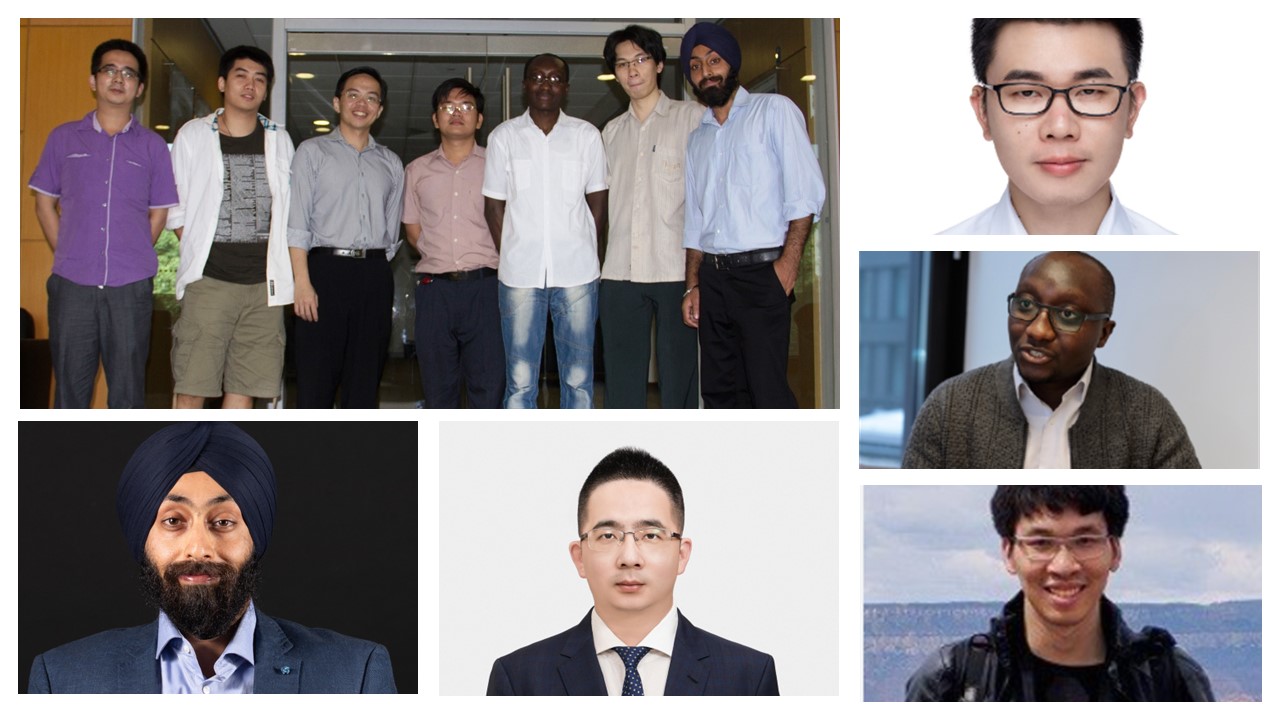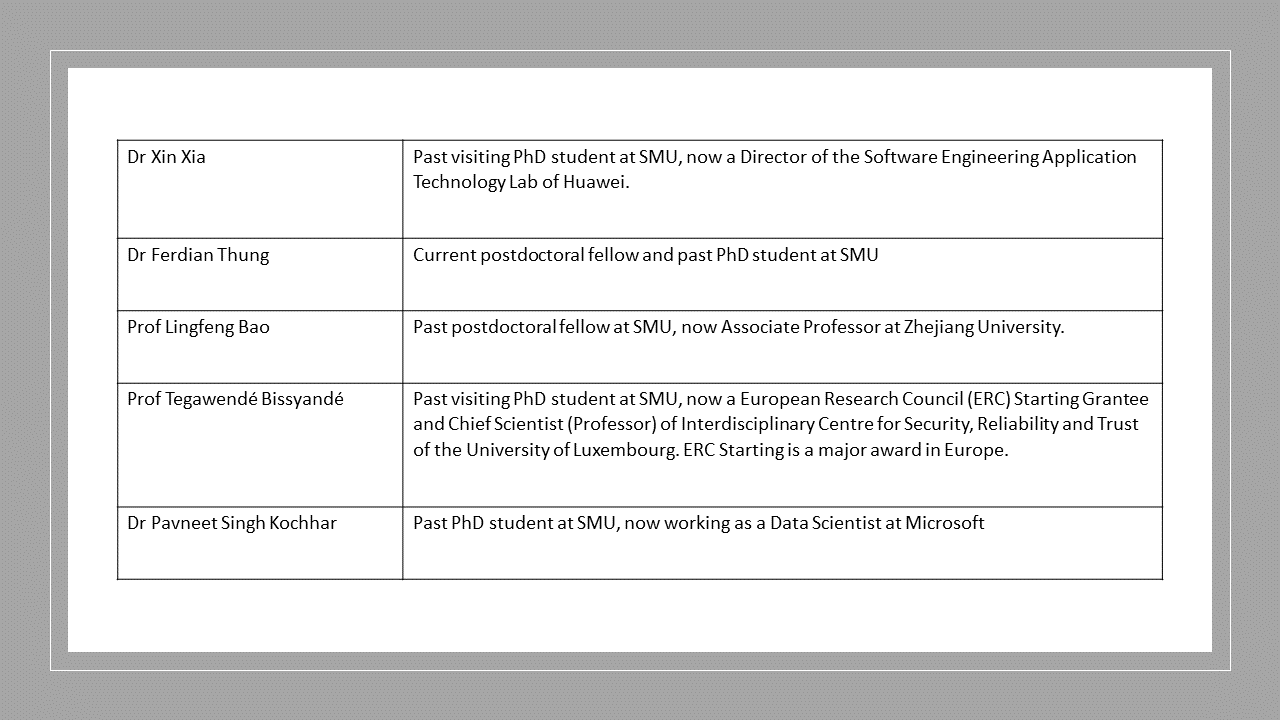
Singapore Management University (SMU) is ranked #4 in Software Engineering for 2022 in the influential CSRankings, which evaluates academics by their presence at some of the most prestigious conference venues in the field. It is a vital resource for graduate students researching on which schools to apply to study emerging topics and active researchers.
The top four institutions in this list of 153 comprise Nanjing University, Fudan University, and Peking University in the top three positions, while Chongqing University and Monash University are tied with SMU at #4. At #4, these three universities are ahead of the Chinese Academy of Sciences, Iowa State University and the University of Texas at Dallas. (Refer to the list here: CSRankings: Computer Science Rankings compiled by Prof Emery Berger).
In addition, SMU ranks among the five most active institutions in software engineering research, according to a study published by the Journal of Systems and Software in 2021. This University of Texas at Dallas (UT Dallas) study, ‘A bibliometric assessment of software engineering themes, scholars and institutions (2013–2020)’ (Volume 180, Oct 2021), was authored by W. Eric Wong and his research team. This ranking puts SMU in the league of the University of California (#1), Carnegie Mellon University (#2), Nanjing University (#3) and Microsoft Research (#4).
Two SMU professors were also named among the most active researchers in the dataset. This includes OUB Chair Professor of Computer Science David Lo, who is also the Director of the Centre for Research on Software Engineering, and Director of the Information and Systems Cluster at the School of Computing and Information Systems and Professor of Computer Science Sun Jun. Their work covers the areas of AI for software engineering, software analytics, formal methods and their applications to improve software security, reliability, maintainability, and developer productivity.
The SMU network of SCIS graduates in key research roles include sterling alumni who appear as researchers of note in the UT Dallas Study, namely:
The UT Dallas ranking is based on a dataset of top journal and conference papers. It uses a bibliometric approach to evaluate academics in the field. Bibliometrics is a set of methods to quantitatively analyse research literature and is used to gauge the productivity and impact of institutions and academics.
This study sought to understand the top emerging themes in software engineering research, identify the most published scholars in the field of systems and software engineering, and the most published institutions. This study is a follow-up of the bibliometric series of papers on software engineering research, published in the Journal of Systems and Software for more than two decades.
The research demonstrates that in the fast-developing field of software engineering, SMU’s SCIS stands out for its active and influential world-class research.
The calibre of the SCIS faculty is also demonstrated in Research.com’s list of the Best Computer Science Scientists in Singapore for Dec 2022. They include Prof David Lo, Prof Steven C.H. Hoi, Prof Robert H. Deng and Prof Ee-Peng Lim among the top 30.
According to SMU’s Vice Provost (Research), Prof Archan Misra, “This ranking reflects the scientific merit and the impact of our research across a wide range of software engineering topics. The software engineering team, as part of the Centre for Research on Intelligent Software Engineering (RISE), stands out by being engaged in world-class research, evidenced by an excellent publication record and collaborations with several top-tier academic institutions and industry partners.”
“I’m proud of my colleagues for winning multiple distinguished/best/most influential paper awards, while also serving in many leadership roles in the software engineering community, including conferences and journals. Their passion for their work exemplifies SMU’s constant striving for academic excellence at the intersection of social sciences, management, and computing.”

